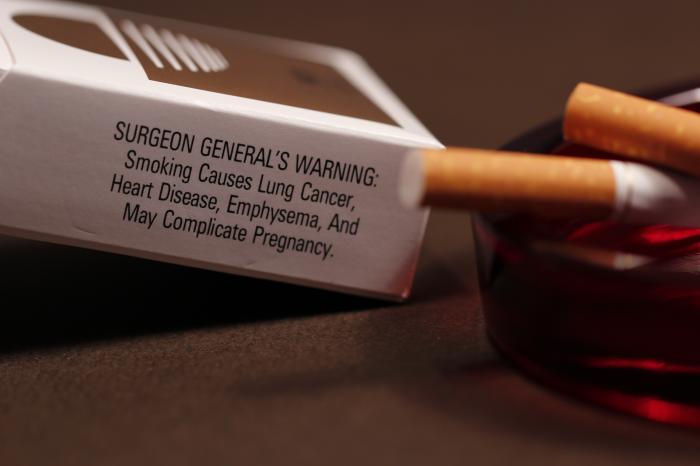Editorial: CVS smokes competition with new “no tobacco” policy
CVS bans cigarette sales
February 7, 2014
“Helping people on their path to better health.” According to CVS Caremark, this is the purpose of their business. Many corporations include similar positive and ephemeral aspirations in their mission statements and public relations statements, but few take drastic steps toward the realization of such goals. This is where CVS has set itself apart from others.
This past Wednesday, CVS announced that it will cease the sale of cigarettes and tobacco products in its stores by October of this year. This move will make CVS the first national pharmacy to embrace a tobacco-free strategy. The 7,600-store business anticipates some negative consequences, as CVS expects to lose around $2 billion a year from the loss of direct tobacco sales and from other purchases made by tobacco consumers.
A new smoking cessation campaign will also be introduced by CVS this spring, aimed at helping individuals quit their tobacco use. For a retail giant like CVS, $2 billion plus the cost of a national campaign is not cause for ruin, but as a publicly traded company, their responsibility is normally seen as making the most money legally possible for their shareholders.
With praise flooding in from all corners of the nation, though, including a congratulatory letter from President Obama, CVS looks like it will still be in good shape. Some have even speculated, after seeing the overwhelmingly positive public reaction, that CVS has decided to change their tobacco sale policy as a publicity stunt aimed at actually increasing sales.
The heightened publicity of their new approach will definitely help concerned consumers know of their tobacco ban, but the novelty of CVS’s announcement will wear itself out in time. Long after the story becomes forgotten, they will still lose the revenues of smokers across the country.
Another potentially self-serving reason for CVS to have stopped selling tobacco products is the increased possibility for partnerships with hospitals and healthcare providers.
Even if CVS has decided to halt tobacco sales because they think it will generate more business or lucrative partnerships, it does not mean their actions are without benefit to others. No matter what their reasons, CVS is taking a step toward providing a healthier shopping experience. Tobacco users who either have quit or are trying to quit can be assured that their stop at the pharmacy will not tempt them to buy a pack, and parents hoping to keep their children away from tobacco advertisements will have one more safe haven.
As CVS makes abundantly clear on their website and in public announcements, tobacco use is a serious health concern for the United States. Over 400,000 deaths a year can be attributed to smoking, and almost ninety percent of lung cancer cases in the United States are related to tobacco, according to the US Surgeon General. Chronic Obstructive Pulmonary Disease, usually related to smoking, also afflicts over 6% of the American population, including actor Leonard Nimoy who announced his condition this week, telling Twitter followers that he stopped smoking thirty years ago, but even that was “too late.”
Since they consider themselves a healthcare company, CVS is right to stop selling such an unhealthy product that is so closely associated not only with causing specific health problems, but exacerbating existing conditions. Their focus on “better health outcomes” is completely out of sync with selling tobacco, and their new policy reflects this.
CVS may very well see improvements in their public image, business partnerships, and even sales, but as their President and CEO Larry Merio puts it, removing tobacco products from their stores is also the right thing to do.







